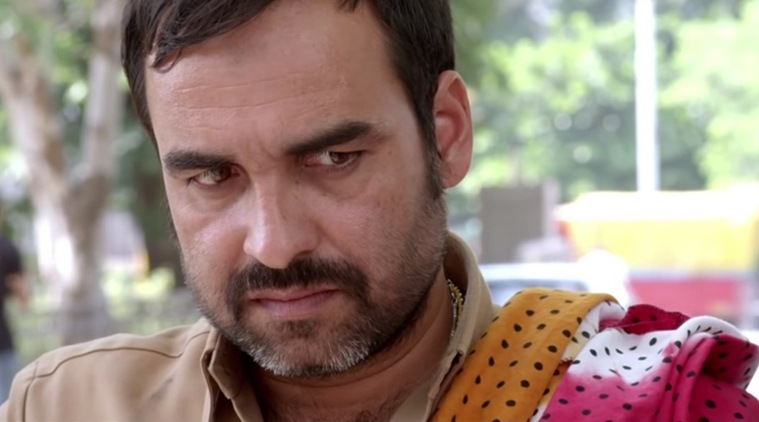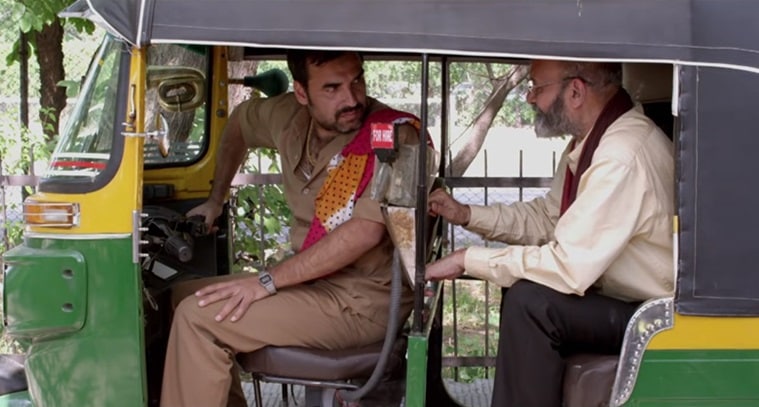
Pankaj Tripathi’s first international project Mango Dreams took almost three years to reach the Indian audience. The film, which is now streaming on Netflix, has Tripathi playing a Muslim autorickshaw driver who forges a friendship with a Hindu doctor as they travel through various Indian states in search of the doctor’s childhood home.
Produced and directed by John Upchurch, Mango Dreams also won Tripathi the best actor award at the Capetown International Film Market and Festival in 2017.
In an exclusive chat with indianexpress.com, Tripathi talks about Mango Dreams and the digital medium.
Here are excerpts from the conversation:
Q. Why did you take up Mango Dreams?
I had accepted it because it is a nice and relevant story. Neither was there a lot of money nor a big set-up or a producer, just a beautiful human story about a doctor and an auto driver who take a road trip of 2600 km due to certain circumstances. So the movie unfolds during this journey.
Q. Mango Dreams was made in 2016, but took almost three years to reach the Indian audience. Was the wait too long?
That’s what happens in independent cinema. It isn’t from a corporate or a big studio. Though it went around in 40-50 festivals, travelled across the US, it finally got released on Netflix in India.
Since the film is based in India, has Indian actors and an Indian story, if people here watch it, then only its motive will be achieved.

Q. It has a message of communal harmony. You think we need more such films?
This film conveys its message without being loud and preachy. There’s a reference to the Partition and communal harmony. My character has a lot of hatred inside him. And hatred is a thing where you consume poison and want the other person to also die.
Q. The film is in English. Was speaking English dialogues a challenge?
Language was indeed a problem. When I received the script, I opened its first page and saw its dialogues in English. I mailed the director that I can’t do it because I can’t speak English. The director said ‘acting speaks all languages. So forget about English, I can make your lines in Hindi. Anyway, I have to write subtitles, so you can speak in Hindi.’ But I refused as it was a challenge for me. I read the script and told him I’ll do it in English only.
The good thing was accent was not an issue. Even in real life, I cannot have an artificial accent, and over here, I needed to speak like an Indian auto driver. I did have a problem with an Indian auto driver speaking to an Indian passenger in English. But the director was from the US who thought his bigger audience was there. I was scared on the first day, but it became easier from the second day. The kind of comfort I feel while doing a Hindi film, I felt the same in Mango Dreams too.
If it were in Hindi, it would have connected better in India. Still, language is no barrier as emotions are universal.
Watch | Mango Dreams Trailer
Q. Did you learn to drive an auto rickshaw?
I drove an auto for 500-600 km. I learnt it for 5-6 days, rest I know how to drive. We began shooting it in Ahmedabad and ended it at Wagah Border. We were on the highway for 28 days. And every day I used to ride an auto for around 50-60 km. I became an expert. (laughs!)
Q. With Sacred Games, Mirzapur and now Mango Dreams also releasing on the digital platform, do you find it a better place to experiment with stories?
Digital space is a very democratic platform. Over here if the audience likes your work, they come and tell you this. And no baggage works over here, only craft. There is no pressure of opening too. The audience which comes over here is very critical. If they like the content, they will connect, or else they will leave immediately.